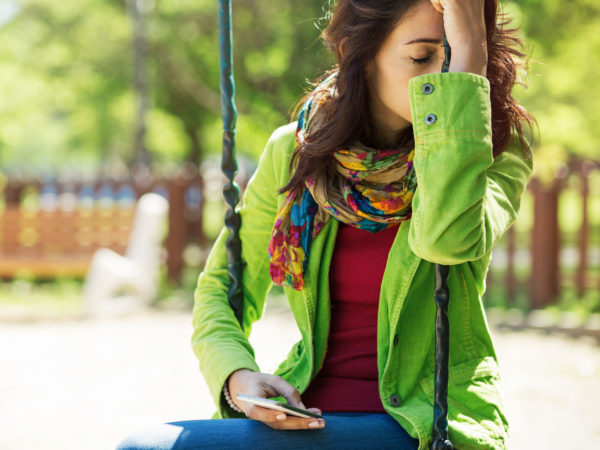Can Social Media Make You Sick?
Is it true that spending too much time on Facebook and other social media sites can lead to depression and loneliness? Why should this be so?
Andrew Weil, M.D. | February 8, 2019

Over the years, a number of studies have shown that frequent use of social media can lead to anxiety, depression, “FOMO” (fear of missing out), and bullying, as well as other negative emotions and behavior, particularly among young people.
The latest study, from the University of Pennsylvania published in December 2018, found that limiting time on social media reduced depression and loneliness in a group of college students. The researchers recruited 143 undergraduates to examine the effect on mental health of cutting back on Facebook, Snapchat and Instagram, the three platforms most popular with these young people. First, the investigators assessed each participant’s mood and well-being. Then they randomly assigned the participants to maintain their usual social-media behavior or to limit time on each of the three platforms to 10 minutes daily. While the time the young people actually spent on social media was monitored, the participants were not asked to forego using social media altogether; the researchers viewed that as an unrealistic goal.
After three weeks, the investigators looked at rates of anxiety, depression, loneliness and FOMO in the subjects. Lead investigator, psychologist Melissa G. Hunt, Ph.D., concluded that using social media less often than you normally would “leads to significant decreases in both depression and loneliness. These effects were particularly pronounced for folks who were more depressed when they came into the study.” One unexpected benefit: participants in both groups reported less FOMO and anxiety after the three weeks, which the researchers suggested might have stemmed from self-monitoring.
While the study didn’t determine the optimal time to spend on social media platforms or the best way to use them, Dr. Hunt said limiting current use reduces opportunity for social comparison. She noted that some existing literature suggests that social media foster an enormous amount of comparison, adding that “when you look at other people’s lives, particularly on Instagram, it’s easy to conclude that everyone else’s life is cooler or better than yours.” Moreover, she added that “when you’re not busy getting sucked into clickbait social media, you’re actually spending more time on things that are more likely to make you feel better about your life.”
We can’t assume from this study that the findings apply to other age groups.
Another recent study, involving 118 young women age 17 to 27, found that when the participants were asked to interact with a post of someone they perceived as more attractive, they felt worse about themselves afterwards. Study author, psychologist Jennifer Mills, Ph.D., of Canada’s York University, said that even if these young women felt bad about themselves before they joined the study, on average “they still felt worse after completing the task.”
I’ve long felt that it is important to limit social media time and to discuss, monitor and – if necessary – restrict the amount of time your children spend online. Make sure that they, and you, spend most of your time cultivating and maintaining intimate, genuine, and supportive relationships with people.
Andrew Weil, M.D.
Sources:
Melissa G. Hunt et al, “No More FOMO: Limiting Social Media Decreases Loneliness And Depression,” Journal of Social and Clinical Psychology, December 2018, DOI: 10.1521/jscp.2018.37.10.751
Jacqueline V. Hogue and Jennifer S. Mills, “The effects of active social media engagement with peers on body image in young women,” Body Image, March 2019, doi.org/10.1016/j.bodyim.2018.11.002












